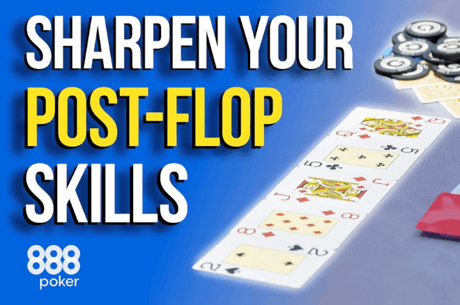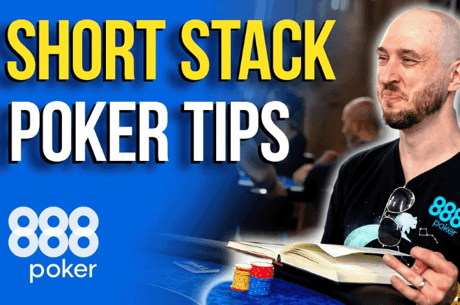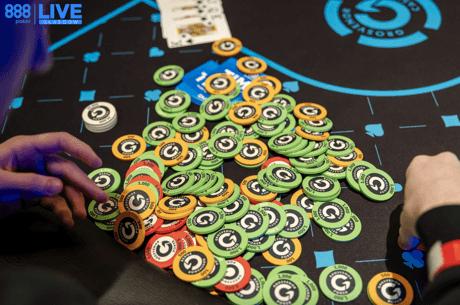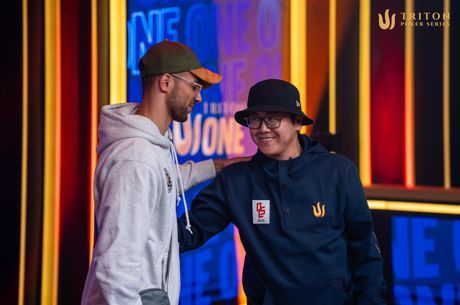Tips for Taking On Better Players

One way to improve your win rate in poker is to select carefully the tables at which you’re going to sit. In other words, if you want to win, find opponents you can beat.
If you ask professional poker players for tips on how to do well, table selection ranks up there with bankroll management as a crucial factor affecting your success. As has been noted before, there is little point being the sixth-best poker player in the world if you keep sitting in games where the top five are playing.
Table selection in cash games is doesn’t have to be too difficult, it just takes a little extra effort before you sit down to play. Whether playing online or live, take a look to see who is at the table before taking a seat, and if you know the players to be tough, don’t sit down. If you don’t know the players beforehand, spend some time observing and if it appears there isn’t much value for you against these opponents, move on to another table.
For example, last summer during a day off from live reporting duties at the World Series of Poker, I headed to Planet Hollywood to play some cash games. The only table with an open seat was one that had several guys in their 20s who seemed to know what they were doing. I had no interest in playing against such a group, especially as the next table along looked like a retirement home convention was taking place. So rather than buy in right away, I waited for a seat to become available at the more favorable-seeming table.
Of course, selecting your table in tournament poker is practically impossible because of random seat draws. The only control you have there — and this is easier online — is to check who has registered for the tournament and if it is too shark-infested don’t register for it yourself. I was able to do this several times in the 180-man turbo games that I used to play at PokerStars, as I’d become familiar with a number of strong players who frequented them.
Still, even when you do practice smart table selection in cash games, it will still sometimes happen that you’ll encounter tougher opponents. And in tournaments where you have practically zero control over who play against, it is even more likely such will happen.
So, what can you do if you find yourself seated with one, two, or more players who are much better at poker than you are — something that can happen even in low buy-in events of some of the more prestigious live tours?
The first thing is to not to let the fact that these big names are now trying to take your chips affect your decision-making too greatly. This is easier said than done if you have Phil Ivey on your left, but you have to try and keep your cool because the better players will realize that you are flustered and out of your depth and use that against you relentlessly.
You may be tempted to make some crazy moves against players who are better than you are because you know they’re thinking on a higher level than your typical opponent. But for the most part, don’t. Keep things simple and straightforward and within your comfort zone rather than try to triple-barrel bluff with queen-high against Daniel Colman.
Be aware that great players will be trying to use their skill advantage against weaker players, so don’t let them. They will try to see plenty of flops and use their position and superior skills to win pots, therefore if you do have to take on these Goliaths do so when you’re the one who has positional advantage.
Some of you may be asking if you should ever purposely sit with players who are stronger than you. The answer, like most things in poker, is that it depends. I remember reading an interview a few years back with a high-stakes cash game specialist who said he used to sit in games with players who were better than him so that he could learn from them and improve his skills. You sometimes will hear other top-level players speak of similarly desiring such challenges and as a result intentionally selecting tough games and/or tables.
It is worth doing this occasionally because growing stagnant at the same level of play is almost as dangerous as sitting with talented players on a regular basis. In fact, this is an idea that should motivate you when it does happen that you’re forced to play against tougher opponents — look on it not with fear and anxiety, but as an opportunity to learn and improve.
Practice smart table and game selection when you can. But when you do have better players sitting across from you, stay cool, don’t let them cause you to divert from your A-game, and watch (and try to learn from) what they are doing that makes them difficult to play against.
Get all the latest PokerNews updates on your social media outlets. Follow us on Twitter and find us on both Facebook and Google+!









